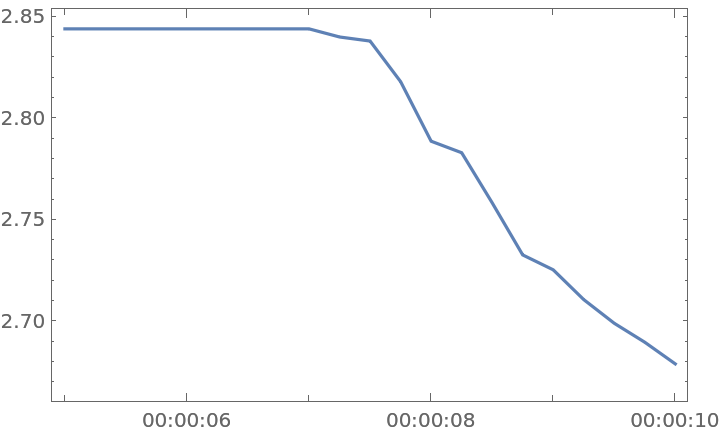Details and Options
The function ResourceFunction["MutualInformation"][dist] expects a bivariate or multivariate distribution.
The estimator ResourceFunction["MutualInformation"][list,t] computes the mutual information between list[i] and list[i+s], with s=1,2,…,t.
The function
ResourceFunction["MutualInformation"][list,___] uses parallel kernels by default. To force sequential execution, use the option value
"Parallelize"→False.
ResourceFunction["MutualInformation"][list,{t,0}] is equivalent to ResourceFunction["MutualInformation"][list,t].
In addition to the options for
KullbackLeiblerDivergence, the function
ResourceFunction["MutualInformation"], when used on distributions, accepts the following options:
| "CopulaKernel" | "Product" | uses the specified copula kernel to compute the joint distribution from the provided marginals |
| "Marginals" | Automatic | specifies how to extract marginals from the joint distribution |
The option setting
"Marginals"→Automatic splits the joint space in half.
Any kernel supported by
CopulaDistribution can be provided, though some copulas will be hard to compute exactly. Use the option
Method→NExpectation to compute a numerical approximation, which is much faster most of the time.
When used on lists of samples, the function ResourceFunction["MutualInformation"] accepts the following options:
| DistanceFunction | ChessboardDistance | distance used to compute the estimator |
| "Errors" | False | whether or not to compute the error on the estimator |
| "KNeighbour" | 4 | kth-nearest neighbor parameter to be used for the estimator on lists of samples |
| "Parallelize" | True | whether or not to use parallel computation |
ResourceFunction["MutualInformation"][list,___] uses an estimator that relies on a kth-nearest neighbors algorithm (see Autor Notes). The default value of k is 4; to set a different value, use the option "KNeighbour".
The estimator performs poorly on very skewed distributions. In such cases, one should renormalize the distribution with
Standardize to get better results.
![v1 = VideoExtractFrames[Video["ExampleData/Caminandes.mp4"], Quantity[Range[50, 100], "Frames"]];
v2 = VideoExtractFrames[Video["ExampleData/Caminandes.mp4"], Quantity[Range[100, 150], "Frames"]];](https://www.wolframcloud.com/obj/resourcesystem/images/abb/abbf9979-2288-4b7f-9099-7992f54b85b8/30a28df007583255.png)
![timeseries = TimeSeries[
ResourceFunction["MutualInformation"][videoframes, 20, DistanceFunction -> ImageDistance], {5, 10}];](https://www.wolframcloud.com/obj/resourcesystem/images/abb/abbf9979-2288-4b7f-9099-7992f54b85b8/27f045dfb81612a8.png)
